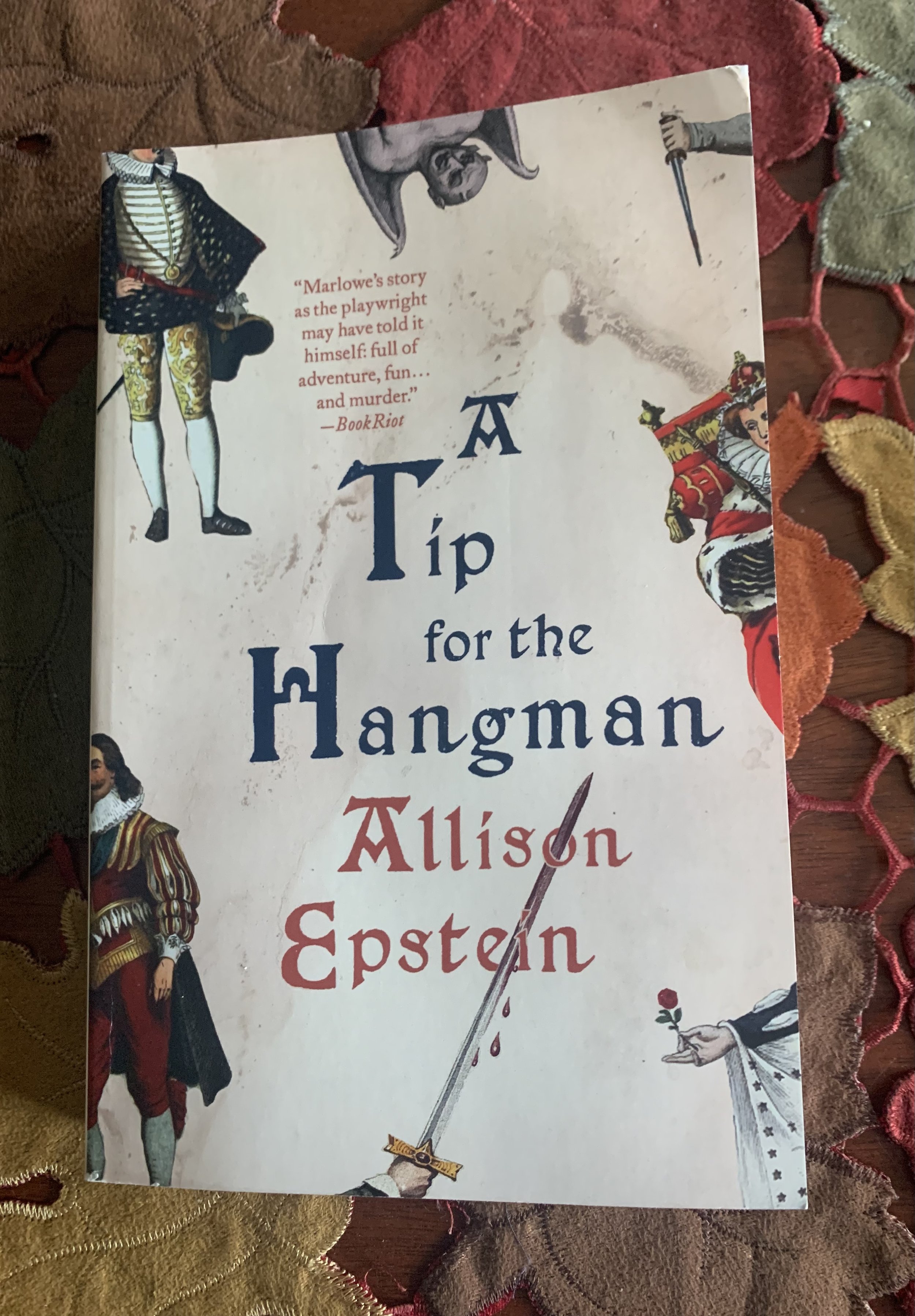The best book I read this month was riveting work of historical fiction set in Elizabethan England. Allison Epstein’s A Tip for the Hangman imagines the life of playwright Christopher “Kit” Marlowe.
Marlowe, a contemporary of Shakespeare’s, is one of history’s more colorful figures. Although there is little or no definitive proof, it is commonly believed that he served as a spy for the English crown, and it is around this premise that Epstein weaves her tale.
What I liked most about this book was the vivid, vibrant depiction of Marlowe. He practically leapt off the page. He was witty and charming and daring and vulnerable, all of which made him a great protagonist.
The story itself has plenty of shady characters (as a spy story should) and some nice twists and turns. But it also has heart and romance and adventure.
I especially appreciated the Author’s Note at the end, in which Epstein explains the liberties she took in crafting the story. Every work of historical fiction deviates from historical fact. It’s always nice to know where and how.
Epstein’s next book—Let the Dead Bury the Dead—comes out next year, and I can’t wait to read it.




